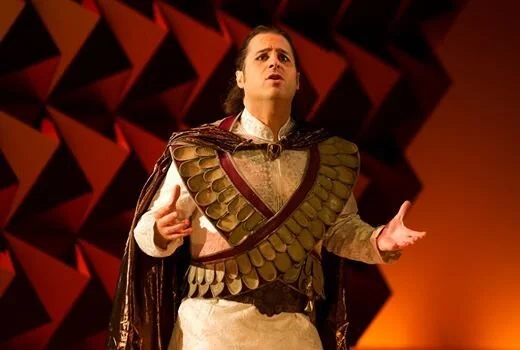VAUGHAN WILLIAMS AND SIBELIUS - CAMBRIDGE PHILHARMONIC
Every note in tonight’s programme tells of the tragedy in Ukraine. Thus the words of young conductor Harry Sever as addressed to the audience in West Road Concert Hall. Though arranged months ago while the savage attack on civilians was still on Putin’s to destroy list, pieces about the tragedy of war and the heady euphoria of independence from tyranny could not have been better chosen.
CONDUCTOR, HARRY SEVER
The evening began with the Phil’s huge chorus. The work was a selection of Vaughan William’s very late opus ‘Ten Blake Songs’. Written in 1958 (bizarre to think it was the same year as the debut of Cliff Richard) the settings, unknown to me, were ravishingly lovely and exquisitely performed by Rachael Dunlop (oboe), Paula Muldoon (violin) and soprano Alison Rose. The William Blake poems from his Songs of Innocence and Experience tell of a happy bucolic world of mystery and Christian faith. The first movement, ‘Infant Joy’ set the tone with the oboe as a magical pipe whose lush melodies circle and weave around the soprano’s lyrics. Vaughan Williams never lived to hear this work performed which is a great pity, I am sure he would have been proud of the trio’s heartfelt rendition.
The short piece was followed by VW’s great choral work, Dona Nobis Pacem scored for bass baritone, soprano, chorus and orchestra. Here the orchestra was replaced by piano in the capable ten fingers of Fran Hills. Though her playing was every bit of what one would hope and expect, it was a shame that we didn’t get the English maestro’s full orchestration: bold, trippingly light then darkly powerful. But to do this ‘you’re gonna need a bigger concert hall’ (and why hasn’t Cambridge got one? Come on ye local millionaires put your names on one).
The work written in 1936 is a cry of anguish against war and the futility of bellicose savagery. Written as the European dictators began to show their imperialist and genocidal hand, VW took his texts from Walt Whitman, the bible and the Latin mass. It is a worthy precursor to Britten’s War Requiem and maybe has been a little overshadowed by that early 1960s cantata. But Dona Nobis Pacem is every bit as moving, terrifying in its recall of brutal war and deeply passionate about the rocky road to peace. As the cantata ends, the soprano repeats the words Dona Nobis Pacem focusing on the last word here as the chorus echoes fade away. Superbly performed by Alison Rose and Tristan Hambleton with the full Phil choir in lavish voice, this was a piece to nail you in the seat. As soon as it was over I longed to hear it again and longed for it to be streamed to the deaf ears of Putin and his warmongering cronies.
ALISON ROSE: PHOTO: ANDY STAPLES
The second half contained one huge work: the 2nd symphony of Sibelius. Written to celebrate the independence of the Finnish people, it is of course a well-known masterpiece. The orchestra as ever played way above its semi professional status and created a deeply emotional and moving sound world. The strings were in gorgeous voice as were all parts and the brass section nearly blew off the roof in its many fortissimo passages. Conductor Sever kept all the forces in this hugely complex work tightly under control but there was bold adventure here too in the crazily fast scherzo and the fiendishly Sibelian cross rhythms. It was pure joy to be in the concert hall last night but joy mixed with deep sadness as after that spine=tingling finale with its utterly gorgeous theme we all remembered the opening words of the conductor.








